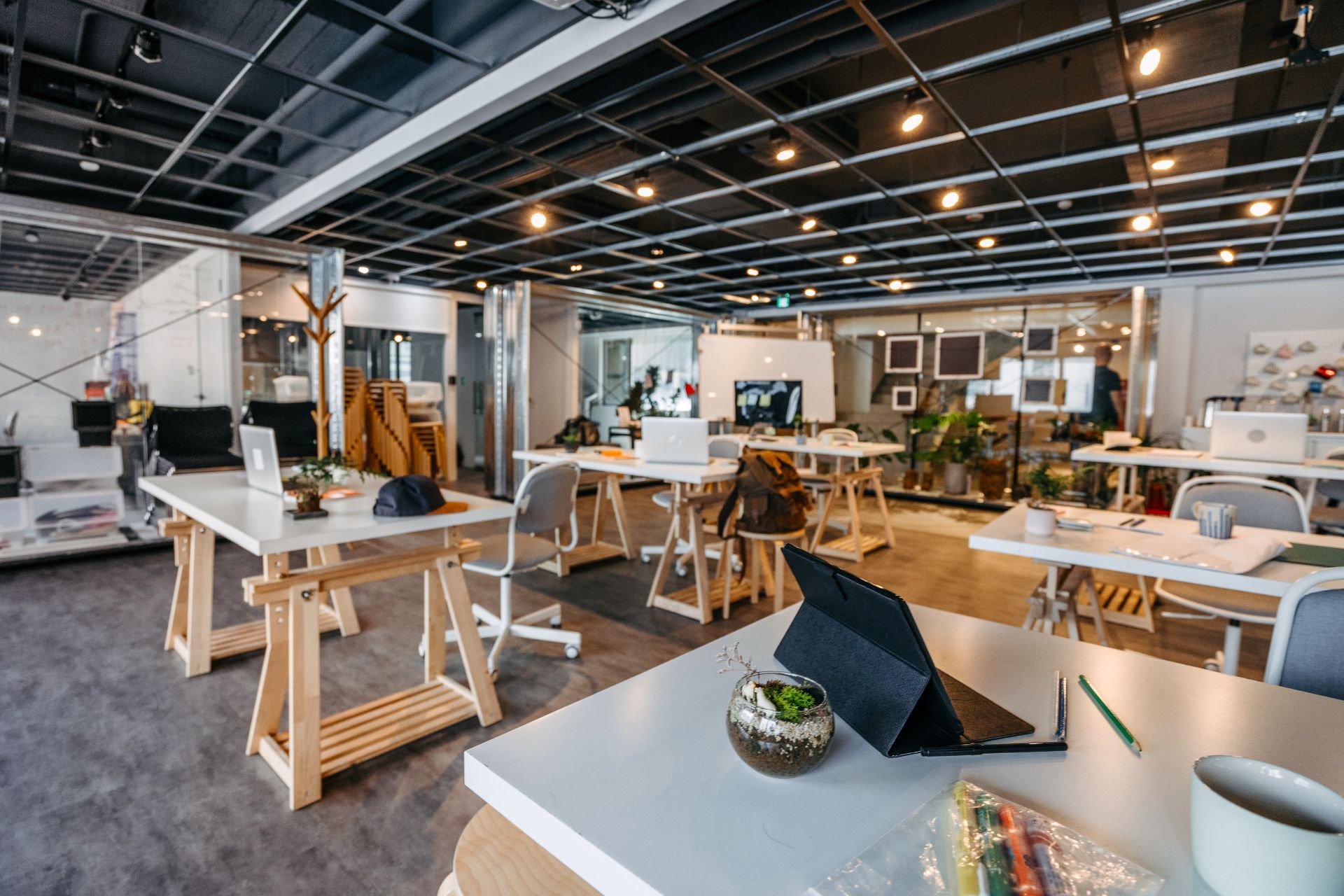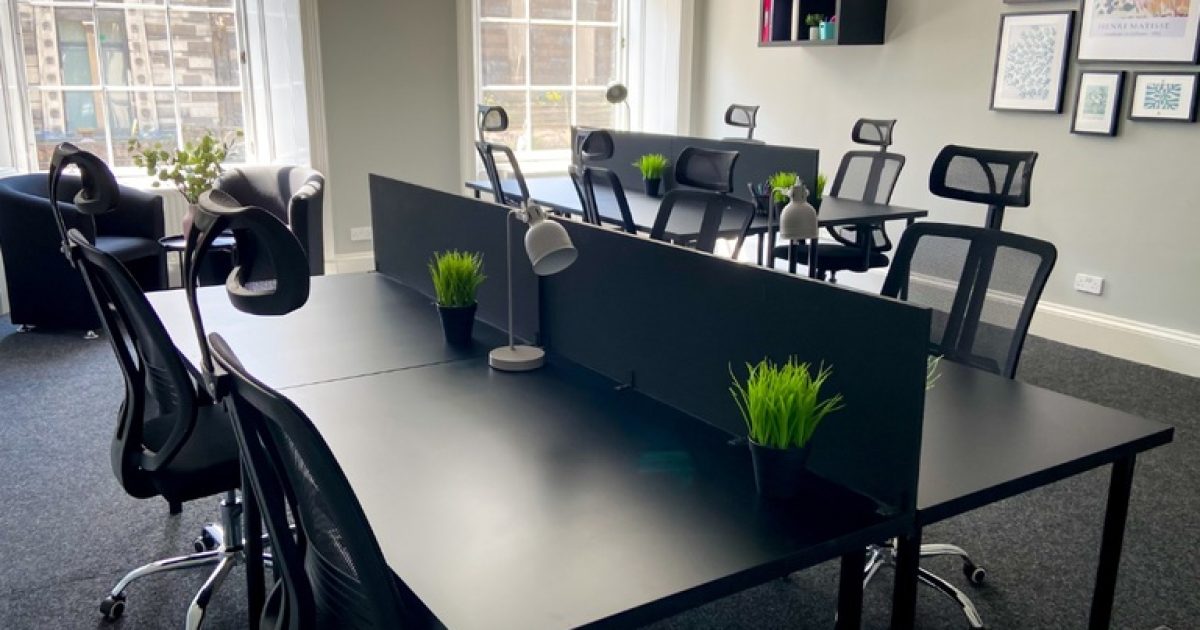Coworking spaces are often the perfect launchpad for small teams and ambitious freelancers, offering flexibility, affordability, and an energetic atmosphere. However, as a business grows, the very qualities that once made coworking so appealing can begin to hold it back. Recognising when it’s time to move into a dedicated office is key to maintaining momentum and professionalism.
There are clear indicators that suggest when a shared space no longer serves your company’s needs effectively. From privacy concerns and rising costs to the importance of brand identity, these shifts highlight the growing mismatch between your ambitions and the coworking model. Below, we explore six of the most common signs that it may be time to transition.
1) Limited Privacy for Sensitive Work

In the early days, a coworking space may have provided exactly what your business needed: a lively atmosphere, affordable desk space, and opportunities for networking. Yet as your company grows, the absence of private areas becomes increasingly problematic. Sensitive conversations, whether with clients or staff, require confidentiality that is difficult to achieve in a shared environment. This lack of privacy is often the first clear sign that your business has moved beyond coworking.
Constant Distractions Erode Focus
The open layout of most coworking hubs encourages collaboration but also creates a steady undercurrent of background noise. Conversations, phone calls, and even casual networking events can intrude on moments when your team needs to focus. Over time, these distractions take a toll on productivity, especially when your business requires deep work and uninterrupted concentration.
What once felt like an energising atmosphere can quickly become a source of frustration for a scaling team. When staff spend more time blocking out interruptions than progressing with tasks, efficiency begins to suffer. At this stage, the coworking environment stops being an asset and starts acting as a barrier to business growth.
Client Impressions Matter More
Early on, clients may have admired your resourcefulness in choosing a coworking hub. However, as your business matures, the setting in which you host important discussions begins to carry more weight. Meeting in a busy communal lounge or reserving a room alongside dozens of other companies can make your operation appear less established than it really is.
Professional image becomes especially critical when negotiating contracts or attracting investors. A dedicated office space signals stability and seriousness, whereas coworking still suggests start-up mode. The gap between perception and reality can undermine your progress, highlighting the importance of moving into a space that reflects your true standing.
Security Concerns Are Harder to Ignore
Coworking environments thrive on openness, but this very design often reduces security. Shared access means sensitive documents, laptops, and confidential discussions are more exposed than they would be in a private setting. For a business handling larger volumes of client data or intellectual property, these risks are no longer acceptable.
As compliance and data protection become bigger priorities, the limitations of coworking are magnified. Even small oversights, such as leaving files unattended while stepping out for a call, can have serious consequences. A private office gives you the control and safeguards necessary to protect both your business and your reputation.
2) Your Team Size Has Outgrown the Space

Coworking spaces often work well when your business is small, but as your team expands, the limitations become obvious. Adding new staff members means juggling desk allocations, fighting for meeting rooms, and trying to maintain cohesion in an environment not designed for larger groups. This growth exposes the structural shortcomings of coworking, pushing you towards more sustainable options.
Booking Rooms Becomes a Daily Struggle
Shared facilities are practical when you only need them occasionally, but as your team grows, reliance on meeting rooms becomes constant. In a coworking setting, these spaces are usually booked far in advance, leaving little room for flexibility. This can cause delays in decision-making and restrict your ability to act quickly.
The frustration of rearranging schedules to secure space eventually impacts both staff morale and productivity. What should be simple, such as hosting a brainstorming session or client call, becomes a logistical headache. At this stage, the drawbacks clearly outweigh the convenience, signalling that your business requires dedicated facilities.
Collaboration Feels Cramped
As teams expand, collaboration takes on a new dimension, often requiring breakout spaces, quiet zones, and flexible layouts. Coworking hubs typically offer limited room for these needs, and working in crowded conditions can stifle creativity. Staff find themselves squeezed into corners or improvising with unsuitable setups.
This not only restricts the natural flow of ideas but also undermines the quality of team interactions. When collaboration begins to feel forced due to environmental constraints, it becomes clear that your company has outgrown the communal setting. A private office offers the room and resources to support teamwork properly.
Scaling Up Isn’t Smooth
A growing business demands agility, yet coworking rarely allows seamless scaling. Expanding your team means securing extra desks, often scattered across different areas rather than in one cohesive zone. This separation reduces efficiency and creates a sense of disconnection among employees.
Such fragmentation makes it harder to nurture culture and keep everyone aligned. The lack of a centralised, controllable environment gradually erodes the cohesion of your business. Once this becomes a recurring challenge, moving into a private office is the logical next step.
3) Rising Costs Reduce the Value

Coworking often appears economical at first, but as your business expands, the financial reality changes. Paying per desk, booking additional meeting rooms, and absorbing extra charges for printing or storage can quickly add up. Over time, the costs can exceed the price of leasing a private office, while offering less in terms of stability and control.
Desk Costs Multiply Quickly
Coworking pricing is usually designed with freelancers or very small teams in mind. Once you employ a larger staff, every new hire translates into another recurring desk fee. Instead of benefitting from economies of scale, you face rising monthly expenses with no long-term asset to show for it.
The result is an expenditure curve that grows steeper as your team expands. At a certain point, it becomes financially inefficient to remain in a coworking setup. Investing in a private office provides more predictable costs and a better foundation for growth.
Add-Ons Become Excessive
Coworking spaces frequently monetise add-ons such as printing, lockers, and extra meeting room access. While these charges are negligible for individuals, they can become substantial for larger businesses. When combined with desk costs, they erode the affordability that once made coworking attractive.
These small but consistent charges accumulate into significant overheads over time. What was initially considered a lean approach starts to feel wasteful. Shifting to a private office helps consolidate these expenses into a clearer and often more cost-effective arrangement.
Better Value Elsewhere
For growing businesses, coworking often reaches a tipping point where the perceived value no longer matches the price paid. At this stage, even modest office leases can offer more facilities, privacy, and control for a similar or lower cost. The flexibility of coworking no longer justifies the premium.
Transitioning to a dedicated office allows you to maximise your investment in workspace. Rather than continually renting desks, you can build a stable environment that directly supports long-term success. The move is both a financial and strategic improvement.
4) Stronger Brand Identity Demands Its Own Space

Coworking environments are deliberately neutral, designed to appeal to a wide range of professionals. While this works early on, it becomes restrictive once your business is ready to showcase its own personality and culture. A dedicated office enables you to express your brand more effectively, strengthening both external image and internal culture.
Your Brand Needs Room to Shine
Clients and partners often form lasting impressions based on the environment in which they meet you. A customised office space can embody your company values and reinforce your brand identity in ways that coworking simply cannot. From signage to design choices, every element can speak to who you are as a business.
When your brand presence is diluted by generic surroundings, you risk being perceived as less distinctive. Establishing a dedicated office helps communicate professionalism, stability, and credibility, aligning your physical space with your brand narrative. This alignment becomes increasingly important as you scale.
Customisation Isn’t Possible
Coworking operators usually set strict rules about how spaces can be used or decorated. While this ensures uniformity, it also limits your ability to make the environment feel like your own. For a growing business, this lack of customisation can feel increasingly constraining.
A private office provides full freedom to design the workspace in line with your identity. From colour schemes to layout, every decision reinforces the message you want to project. The ability to control your environment is an important step in professional maturity.
Culture Thrives in Private Offices
Company culture often develops organically, but environment plays a significant role in shaping it. Coworking spaces, with their transient atmosphere and constant turnover, rarely provide the consistency required for nurturing long-term culture. This can hinder the sense of belonging that larger teams need.
By contrast, a dedicated office fosters unity and strengthens bonds within your team. Employees associate the space with shared goals and values, deepening engagement and loyalty. A strong culture becomes a powerful differentiator in attracting and retaining talent.
5) Complex Operations Need Dedicated Infrastructure

Small businesses can usually manage with little more than internet access and a desk. However, as operations become more complex, the lack of dedicated infrastructure in coworking spaces becomes a serious issue. Companies handling specialised equipment, physical stock, or confidential files quickly find the limitations unworkable.
Storage Becomes a Constant Issue
Most coworking hubs are designed with minimal storage capacity, prioritising flexibility over long-term needs. This can force businesses to rent external storage or compromise on operational efficiency. For teams managing inventory or extensive documentation, the situation soon becomes unsustainable.
The added inconvenience of retrieving materials off-site further slows productivity. A private office with dedicated storage not only simplifies operations but also reduces costs associated with outsourcing these needs. It becomes clear that coworking is no longer a practical solution.
Special Equipment Doesn’t Fit In
Growing businesses often rely on more than just laptops and Wi-Fi. Specialist tools, servers, or design equipment may be essential to daily operations, yet these rarely fit comfortably in coworking spaces. The lack of dedicated facilities can become a bottleneck for progress.
Without the right infrastructure, teams are forced to improvise, creating inefficiencies and frustrations. A private office allows for tailored setups, ensuring that equipment can be integrated smoothly into the workspace. This adjustment is crucial for businesses advancing beyond early stages.
Operational Flow Gets Disrupted
In coworking spaces, day-to-day processes often depend on availability of communal resources, from printers to quiet rooms. As your business expands, reliance on shared facilities leads to frequent disruptions. Staff end up competing with others for basic tools, slowing output.
Over time, these disruptions erode the smooth operational flow your company needs. A dedicated office restores control and provides consistency, supporting efficiency across all areas of the business. It ensures that growth is not hampered by logistical obstacles.
6) Remote Flexibility No Longer Balances Office Needs

At the beginning, coworking often supports hybrid models by giving remote teams somewhere to meet occasionally. However, as your company grows, these flexible arrangements may no longer provide the stability and reliability your team requires. A private office ensures consistency and balance between remote and in-person work.
Hybrid Models Outgrow Hot Desks
Hot desking works when staff only visit occasionally, but larger teams require predictable access. Having to rotate employees around shared desks quickly becomes inefficient. Staff waste time coordinating schedules instead of focusing on their work.
This lack of permanence can also leave employees feeling undervalued or disconnected. By contrast, a dedicated workspace creates consistency and shows commitment to your team. It reinforces stability as your business matures.
Remote Isn’t Always Enough
While remote work has many advantages, it cannot replace the benefits of in-person collaboration. As teams expand, the need for face-to-face interaction grows stronger, especially when developing new projects or mentoring junior staff. Coworking often fails to provide a reliable balance.
The inability to guarantee suitable space for frequent in-person meetings soon becomes a barrier. A private office offers the predictability required to facilitate collaboration without compromise. This reliability strengthens both productivity and cohesion.
Consistency Builds Stability
For growing businesses, consistency is essential not only for staff but also for clients and partners. A dedicated office communicates reliability, signalling that your company is firmly established. Coworking’s transient nature no longer conveys the right message.
Establishing your own space removes uncertainty and reinforces trust. Employees gain a permanent environment where they can thrive, and clients see tangible evidence of growth. This stability becomes a cornerstone of long-term success.
How We Picked These Signs
To make sure this guide feels practical and relevant, we looked at common challenges that businesses face when growing beyond coworking. Here’s what shaped our list:
- Real experiences – We considered feedback from teams who have shared their struggles with outgrowing coworking spaces.
- Operational challenges – Factors like privacy, space, and infrastructure were reviewed as they tend to affect most scaling companies.
- Financial impact – Rising costs and value comparisons were included because they directly influence decision-making.
- Brand and culture – We factored in the growing importance of identity and team spirit as companies mature.
- Future readiness – Each sign reflects a shift that typically pushes businesses to seek more tailored office solutions.
Summary
As businesses evolve, their workspace needs change, and coworking is often only one stage of the journey. Privacy, brand presence, and dedicated infrastructure may become more important over time, yet flexibility and community still have value. At Quintessential Offices, we offer both vibrant coworking options and more tailored private offices, ensuring your business has the right environment at every stage. Contact us today to find the perfect solution for your next chapter.






